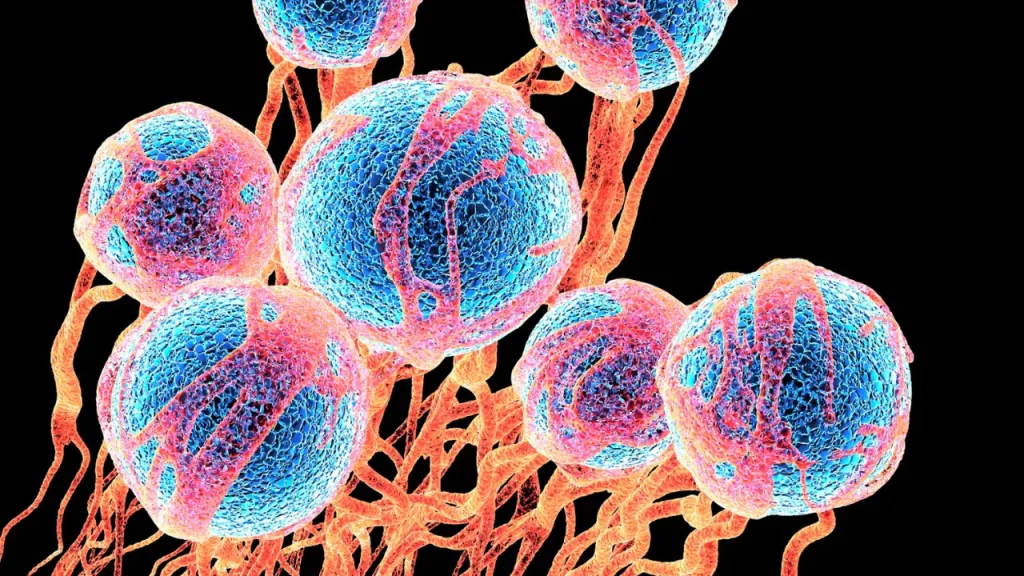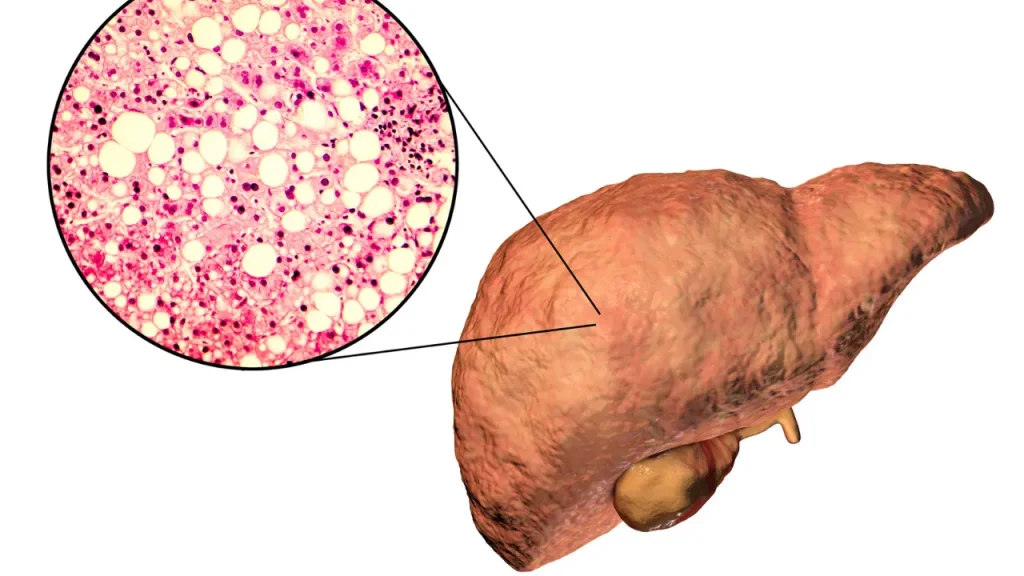Native to North America, boneset (Eupatorium perfoliatum) has a long history of usage as a traditional medicine by both Native Americans and European immigrants. The perfoliate leaves, white blooms, and bitter taste of the plant are its distinguishing features. A number of illnesses, including fever, colds, the flu, and rheumatism have been treated using boneset. This page seeks to provide a thorough study of boneset’s nature, health advantages, ideal dosage, side effects, potential drug interactions, and other pertinent facts for use as a nutritional supplement in a responsible manner.
You May Also Like:
Finding the Best Supplements for Brain Fog After COVID: 5 Top Brands Reviewed
Boneset: Benefits, Dosage, Side Effects, Drug Interactions, and Other Important Information is an original (NootropicsPlanet) article.
Nature of Boneset
The Asteraceae family includes the perennial herbaceous plant known as boneset. Since it is a native of North America, wetlands, marshes, and riverbanks are frequent places to find it. The plant has unusual, perfoliate leaves with a lance-shape and a height of up to 5 feet. From July to October, its tiny, white blooms bloom in thick clusters with flat tops. The plant’s popular name, “boneset,” comes from its traditional use in treating “break-bone fever” or dengue fever, which produces excruciating joint and muscle agony.
Health Benefits of Boneset
Boneset may be used as a natural treatment for a number of diseases, according to several research that have looked at its possible health advantages.
Boneset is utilized for its antipyretic (fever-reducing) characteristics. It also has immunomodulatory effects. According to some research, boneset’s ability to lower fevers may be due to its sesquiterpene lactone content. Furthermore, it has been demonstrated that boneset possesses immunomodulatory qualities that boost the formation of white blood cells and improve the immune system’s response to infection.
In numerous in vitro and animal investigations, the flavonoids and phenolic acids in boneset have proven to have anti-inflammatory effects. These substances prevent the synthesis of pro-inflammatory cytokines, which reduces inflammation and relieves symptoms brought on by inflammatory disorders.
Boneset has shown antiviral activity against a number of viruses, including the herpes simplex virus and the influenza virus. It is believed that boneset’s antiviral properties are caused by its flavonoids, particularly quercetin.
Several investigations into the anticancer potential of boneset have concentrated on its sesquiterpene lactones. In animal models, these substances have been shown to cause cancer cells to undergo apoptosis, or cell death, and to reduce tumour growth.

Chemistry of Boneset
Numerous compounds found in boneset contribute to its medicinal qualities. These substances can be divided into a number of groups, including phenolic acids, terpenoids, sterols, and flavonoids. Among the principal substances present in boneset are:
- Flavonoids: Among the main flavonoids found in boneset are quercetin, kaempferol, and their glycosides. The antioxidant, anti-inflammatory, and antiviral effects of flavonoids are well-established.
- Terpenoids: The primary terpenoids in boneset are the sesquiterpene lactones, such as euperfolitin, eufoliatin, and eufoliatorin. It has been demonstrated that these substances have anti-inflammatory and anticancer properties.
- Sterols: The anti-inflammatory and immunomodulatory properties of boneset are aided by the presence of sterols such as -sitosterol, stigmasterol, and campesterol.
- Phenolic acids: Boneset includes a number of phenolic acids, including as ferulic acid, caffeic acid, and chlorogenic acid, which have anti-inflammatory and antioxidant properties.
The numerous health advantages of boneset are produced by a synergistic action of these phytochemicals. The wide-ranging medicinal effects of boneset may be attributed to the variety of chemicals it contains.
Physiological Mechanisms of Action
Together, the different phytochemicals in boneset exert the wide spectrum of health advantages. The following significant acts are responsible for the physiological mechanisms behind these advantages:
- Inhibition of Inflammatory Pathways: Interleukin-6 (IL-6) and tumor necrosis factor-alpha (TNF-) production have been proven to be inhibited by the flavonoids and phenolic acids present in boneset, such as quercetin and caffeic acid. Boneset may help with symptoms of inflammatory disorders such fever, joint discomfort, and edoema by lowering inflammation.
- Immune Function Modulation: Sesquiterpene lactones and sterols, which are present in boneset, have been shown to have immunomodulatory effects. They might increase the immune system’s capacity to combat infections by promoting the creation of white blood cells (lymphocytes and macrophages). Colds, the flu, and other viral diseases may become milder and last shorter as a result.
- Antiviral Activity: By preventing viral reproduction and entrance into host cells, flavonoids, particularly quercetin, have antiviral characteristics. This might lessen the severity of viral infections like the flu and the common cold or help prevent them from occurring.
- Induction of Apoptosis in Cancer Cells: The boneset sesquiterpene lactones have shown anticancer potential by inducing apoptosis (programmed cell death) in a number of cancer cell lines. Although further research is required to validate these effects in humans, this may help slow the growth and spread of tumours.
- Antioxidant Activity: The flavonoids and phenolic acids found in boneset have antioxidant characteristics that may help shield cells from oxidative harm. Numerous chronic diseases, such as cancer, cardiovascular disease, and neurological disorders, are linked to oxidative stress. Boneset may help in the prevention or treatment of several illnesses by scavenging free radicals.

Optimal Dosage of Boneset
The ideal dosage of boneset is determined by a number of variables, including the patient’s age, general health, and the illness being treated. Traditional use and a few clinical research offer recommendations on suitable dosages, despite the lack of a generally agreed dosage.
Boneset is frequently used as a dried herb tea. Typically, 1 to 2 tablespoons of dried boneset can be steeped for 10 to 15 minutes in boiling water. Up to three times a day are allowed for tea consumption.
A tincture is yet another well-liked boneset preparation. A boneset tincture’s average dosage is 2 to 4 millilitres (40 to 80 drops), up to three times each day.
When using boneset in capsule or tablet form, it’s crucial to adhere to the dosage guidelines provided by the manufacturer. A daily intake of 300 to 600 milligrammes of boneset extract is typically regarded as both secure and efficient.
Before beginning any new supplement, it’s crucial to seek medical advice, especially for people who already take medicine or have pre-existing medical conditions.
Side Effects of Boneset
When used moderately and briefly, boneset is typically regarded as safe. However, when used excessively or for prolonged periods of time, several potential adverse effects have been noted. These negative impacts could consist of:
- Gastrointestinal Distress: Abdominal pain, nausea, vomiting, and diarrhoea might occur after consuming high amounts of boneset.
- Liver Toxicity: Chronic usage of boneset, particularly due to the sesquiterpene lactones found in the plant, may result in hepatotoxicity (liver damage).
- Allergic Reactions: Some people who take boneset may develop allergic reactions such as skin rashes, itching, and swelling.
Boneset should not be used during pregnancy or lactation as there is no evidence that it is safe for these groups.

Potential Substance Interactions with Boneset
Despite being generally regarded as harmless, boneset may interact with some drugs or substances. Among the possible interactions are:
- Anticoagulant and antiplatelet drugs: When taken with anticoagulant or antiplatelet drugs like warfarin, heparin, or aspirin, such as boneset, there may be an increased risk of bleeding.
- Immunosuppressive medicines: Due to boneset’s immunomodulatory properties, immunosuppressive medicines may not work as well as they could because of its interference with their activity.
- Cytochrome P450 enzyme substrates: Some cytochrome P450 enzymes, which are involved in the metabolism of different medicines, may be inhibited by boneset. This can result in higher concentrations of these medications in the body, which might have negative effects.
- Antiviral drugs: Because boneset has antiviral qualities, it may interact with antiviral drugs, thereby affecting how effective they are.
Responsible Uses of Boneset as a Nutritional Supplement
It’s important to discuss your medical history and health issues with a licensed healthcare practitioner before using any new supplement. Pick boneset supplements from trustworthy producers who follow stringent quality control guidelines and openly disclose the ingredients in their products. Don’t take more boneset than is advised because too much of it can have negative side effects. If any unfavorable responses to boneset occur, stop using the medication immediately.
Boneset:
Conclusion
Fever reduction is something many folks choose to remedy with over-the-counter medications, like Tylenol. However, many people choose to avoid taking acetaminophen for extended periods of time due to its effects on the liver. Boneset is a natural fever-reduction solution you can employ when trying to avoid these types of medications.
Boneset tea may be the perfect antidote to symptoms of an ongoing sickness, such as the common cold. The warmth of the drink combined with the fever-reduction qualities of the sesquiterpene lactones in boneset will likely help you or your loved ones feel better in no time.

References:
- A review on the immunomodulatory activity of Astersceae family plants. Retrieved from: https://www.researchgate.net/publication/267754152_A_Review_on_the_immunomodulatory_activity_of_Asteraceae_family_plants
- Apoptotic effects of sesquiterpene lactones in human cancer cell lines. Retrieved from: https://www.nature.com/articles/1203516
Important Note: The information contained in this article is for general informational purposes only, and should not be construed as health or medical advice, nor is it intended to diagnose, prevent, treat, or cure any disease or health condition. Before embarking on any diet, fitness regimen, or program of nutritional supplementation, it is advisable to consult your healthcare professional in order to determine its safety and probable efficacy in terms of your individual state of health.
Regarding Nutritional Supplements Or Other Non-Prescription Health Products: If any nutritional supplements or other non-prescription health products are mentioned in the foregoing article, any claims or statements made about them have not been evaluated by the U.S. Food and Drug Administration, and such nutritional supplements or other health products are not intended to diagnose, treat, cure, or prevent any disease.


